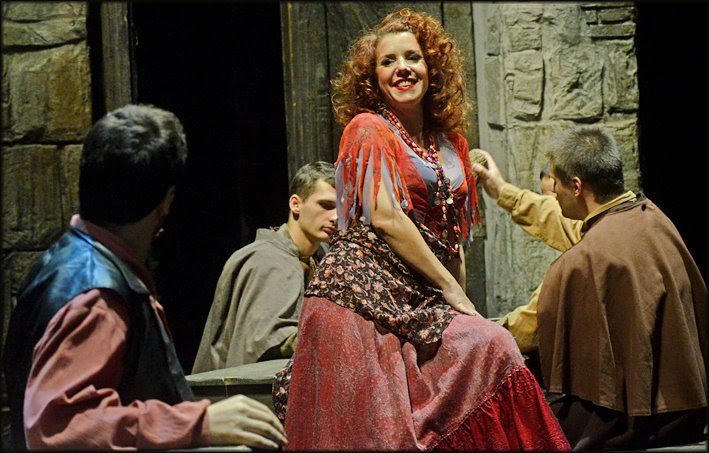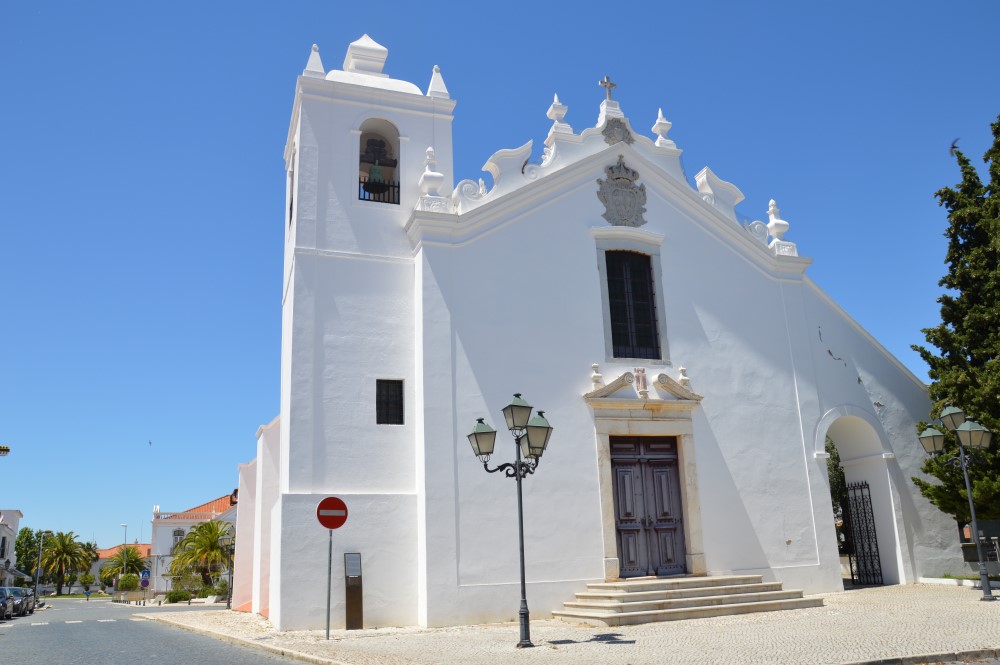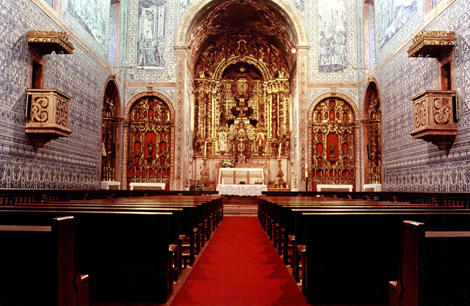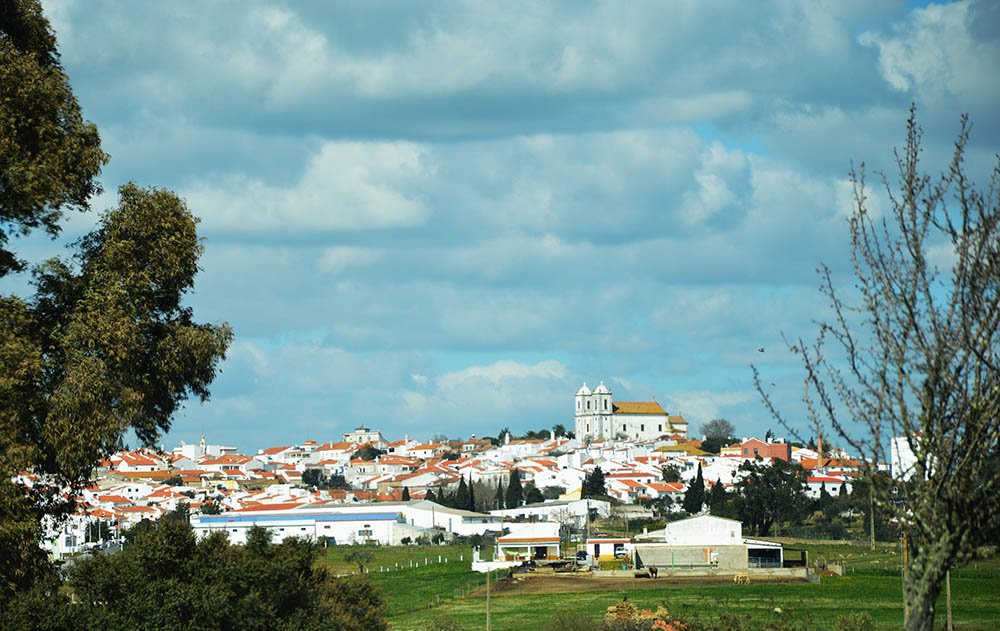 The opera “The Bluebeard Castle”, by a great contemporary composer, the Hungarian Béla Bartók (1881-1945), performed by great soloists of the Hungarian opera, is the proposal that follows at the Festival Terras sem Sombra, which in this next one weekend of the 8th and 9th of April arrives in Castro Verde.
The opera “The Bluebeard Castle”, by a great contemporary composer, the Hungarian Béla Bartók (1881-1945), performed by great soloists of the Hungarian opera, is the proposal that follows at the Festival Terras sem Sombra, which in this next one weekend of the 8th and 9th of April arrives in Castro Verde.
With the 2017 season of Terras sem Sombra, whose motto “From Spirituality in Art”, is about to reach its halfway point, the festival now includes the music of Béla Bartók, who dedicated extraordinary attention to traditional music and literature, contributing decisively to renew them, as a source of inspiration for modernity.
For this festival weekend, once again, a unique program will be on the ground which, after discovering the historic center of Castro Verde, on Saturday afternoon, proposes the enjoyment, in the Basilica, in a concert version, of an essential opera: Bluebeard Castle.
«This work by Bártok, against the background of the intriguing story of Duke Barba-Azul, prototype of the selfish, calls for reflection on the role of relationships between people in today's society and the feeling of loneliness that pervades them», stresses the organization of the festival.
On the second day, the action to safeguard biodiversity leads to revisiting ancestral practices of the Wool Cycle, deeply linked to the ancient transhumance between Campo Branco and the Iberian Meseta. Among the guests will be Klára Breuer, the Hungarian ambassador to Portugal, and her family.
Monuments, streets and landscapes
 The weekend starts on Saturday, April 8th, with a visit to the historic center of Castro Verde, guided by the art historian José António Falcão, director of the Heritage Department of the Diocese of Beja.
The weekend starts on Saturday, April 8th, with a visit to the historic center of Castro Verde, guided by the art historian José António Falcão, director of the Heritage Department of the Diocese of Beja.
The initiative has a meeting point, at 14:30 pm, at the Royal Basilica of Nossa Senhora da Conceição, which is the start of the tour.
A tour of the town's monuments and streets will reveal its main references, such as the church of Nossa Senhora dos Remédios, linked by tradition to the hermit who, according to legend, encouraged D. Afonso Henriques, on the eve of the battle of Ourique, to continue unabated, or the Lucerna Museum, which houses an internationally renowned collection of lucerns from the Roman period (1994st-XNUMXrd centuries), discovered in XNUMX in the town of Santa Bárbara dos Padrão.
But the main focus of the visit will be the Misericórdia church, a XNUMXth-century building that preserves, in addition to a remarkable set of carved woodwork, painting on canvas and sculpture, a very unique painted ceiling.
With no usual cult, the building, classified as a Monument of Public Interest, reveals itself on this day, in all its splendor, to the spectators of Terras sem Sombra.
A contemporary classic: Bluebeard Castle
 In keeping with the challenge of projecting Terras sem Sombra to other geographies, this year's choice could not be more exciting, as the Franz Liszt Academy, from Budapest, a hotbed of brilliant soloists, will be represented in Castro Verde.
In keeping with the challenge of projecting Terras sem Sombra to other geographies, this year's choice could not be more exciting, as the Franz Liszt Academy, from Budapest, a hotbed of brilliant soloists, will be represented in Castro Verde.
the opera in one act Bluebeard Castle, with music by Béla Bartók and libretto by Béla Balázs, inspired by a famous tale by Charles Perrault, contains a profound reflection on current society and the difficulty of integrating the individual, so often condemned to solitude by his own individualism.
A theme that fits in very well with the festival's program in this 13th edition, dedicated to rediscovering the links between culture and religion. For this, it has exceptional artists, all from that famous musical centre.
Apollónia Szolnoki is a reference among the soloists of the Budapest National Opera. He has a remarkable track record as a mezzo. Numerous opera singers change their vocal register throughout their career and this professional's voice was no exception: it rose in pitch and became more dramatic.
Roles like Donna Elvira's in Don Giovanni – who even performed at the National Theaters of Miskolc and Debrecen –, and Sieglinde, in The Valkyries, are among his election papers.
Antal Cseh, bass-baritone, regularly performs at the National Theater in Szeged, also performing frequently at the Budapest Opera, where he has performed early roles, to great applause from audiences and critics.
He was distinguished with the Vaszy Viktor Prize, the Szeged Prize and the Dömötör Prize for Best Opera Singer, having stood out in international and national competitions (Nikola Cvejics, Simándy József, Erkel Ferenc, etc.).
The pianist András Rákai is an accompanist, favored by many singers from Europe and North America. He has developed his work in international theaters, competitions and festivals, particularly in Hungary, with an emphasis on the National Theaters of Szeged and Miskolc, Teatro Bartók, from Dunaújváros, the Szeged Open-air Festival and the Armel Opera Competition.
Memories of Pastoral Care and Transhumance: The Wool Cycle in Campo Branco
 The contingencies of the global economy have not benefited the national wool market at all. Once a product of high wealth, its yield barely covers the cost of shearing today, which poses many problems for livestock keepers.
The contingencies of the global economy have not benefited the national wool market at all. Once a product of high wealth, its yield barely covers the cost of shearing today, which poses many problems for livestock keepers.
However, in the context of the cultural landscape of Castro Verde (whose importance, from the point of view of nature conservation, is underlying the recent candidacy for Biosphere Reserve, presented to UNESCO), sheep is a preponderant element – and wool one of the its finest products.
Faithful to the intention of promoting knowledge, safeguarding and valuing the “Wool Cycle”, Terras sem Sombra accompanies a traditional shearing of the region's native sheep (merina and campaniça breeds), in which the festival's volunteers will collaborate, instructing also use the traditional method of folding wool, and visit the recently inaugurated Lombador pole, dedicated to weaving, in the parish of Santa Bárbara de Padrão, in the Museu da Ruralidade.
A guiding thread to deepen the reflection, begun in 2003, on the heritage of transhumance, at the national and peninsular level, in Campo Branco lands, where pastoralism and the activities associated with it constitute a fundamental reference for the understanding of this inland of Baixo Alentejo.
The action starts at 10 am and, like other initiatives by Terras sem Sombra, it is open access.
All these initiatives for another weekend of Festival Terras sem Sombra are promoted by the Heritage Department of the Diocese of Beja and the Pedra Angular Association, in partnership with the Municipality of Castro Verde and the Institute for Nature and Forest Conservation.


















Comments